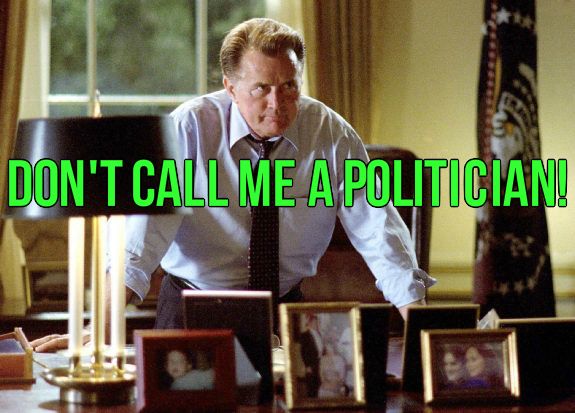As the fine folks at Public Works remind us, how we talk about public officials matters. It’s easy to default to bad habits. We all do it. And, all too often there are reasons to be frustrated with our representatives in government. But those habits (yes, I’m talking about the slamming, badmouthing, demonizing, name calling, grumbling…) trigger deeply entrenched, negative frames about government.
We have a lot of work to do reminding Americans that government is our best tool for getting important work done together as communities. Research commissioned by Public Works has shown that what comes to mind when Americans think about government is politics and politicians rather than the actual work of government. When we think of politicians, we think of bickering, corruption by corporate money, and self-interest.
You can see why it’s counterproductive to join in the politician bashing. In the end, it not only further erodes faith in government, it ignores the good work of all the upstanding electeds AND sets ridiculously low expectations for those whose job it is to represent us.
It’s no wonder that so many Americans simply check out.
As Jon Grinspan wrote in a NYT op-ed recently, the “‘throw the bums out’ mentality … let[s] the public off the hook” when it comes to actually evaluating any particular politician’s performance (and, sometimes, yes, voting them out of office.) Grinspan reminds us that these negative frames not only offer an excuse to retreat from public affairs altogether, making reform harder and undercutting democratic participation, but also create a political context that “favors those who would like to drown government in a bathtub.”
So, how can we talk about our political representatives in more productive ways? Public Works offers some rules to live by.
[flashcard]
Talking About Our Representatives
Positive job descriptions: Stewards, managers, planners, problem-solvers, consensus-builders or our voice in the capitol. These give us real yardsticks for performance and reinforces what our government is for.
Give frustration a positive direction: Steer frustration and apathy toward participation. Emphasize that “our choice,” “our community,” “voting is our chance to say if our representatives are doing the job we gave them.”
Remember powerful little “reframes”: Avoid: Us and them language; lumping all politicians together (even the “other side”); stereotypes; and squabbles. Instead of politicians—our representatives. Focus on shared values and real people with a job to do. Talk about government as our tool for getting things done together.
[/flashcard]


Comments are closed.